Malaysia, Paraguay join trade and investment coalition co-founded by Singapore
Small- and medium-sized countries have the agency to advance a positive agenda for trade and investment, said Singapore's Deputy Prime Minister Gan Kim Yong.
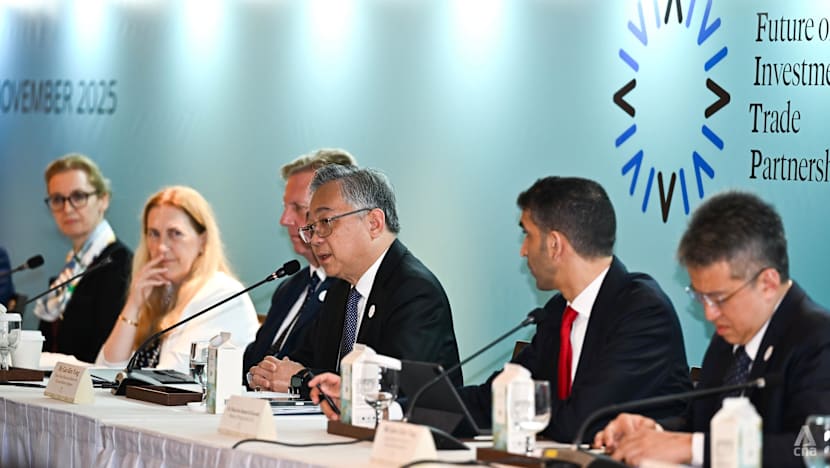
Deputy Prime Minister and Minister for Trade and Industry Gan Kim Yong speaks to the media during FIT Partnership Joint Press Conference in Shangri-La Hotel on Nov 18, 2025. (Photo: CNA/Tan Wen Lin)

This audio is generated by an AI tool.
SINGAPORE: Malaysia and Paraguay have joined a trade bloc of "like-minded" World Trade Organization (WTO) members to advance efforts to strengthen the rules-based multilateral trading system, the coalition announced on Tuesday (Nov 18).
Welcoming the two new members at the inaugural Future of Investment and Trade (FIT) Partnership ministerial meeting held at Shangri-La Hotel, Singapore's Deputy Prime Minister Gan Kim Yong said a predictable, open and stable system is critical for the growth and development of small- and medium-sized, trade dependent economies.
Singapore is one of the original members of the FIT Partnership, which was first launched on Sep 16 to champion a forward-looking trade agenda at a time when the global rules-based multilateral trading system is under strain.
Singapore, New Zealand, Switzerland and the United Arab Emirates are the group's co-convenors, while the other original members are Brunei, Costa Rica, Chile, Iceland, Liechtenstein, Morocco, Norway, Panama, Rwanda and Uruguay.
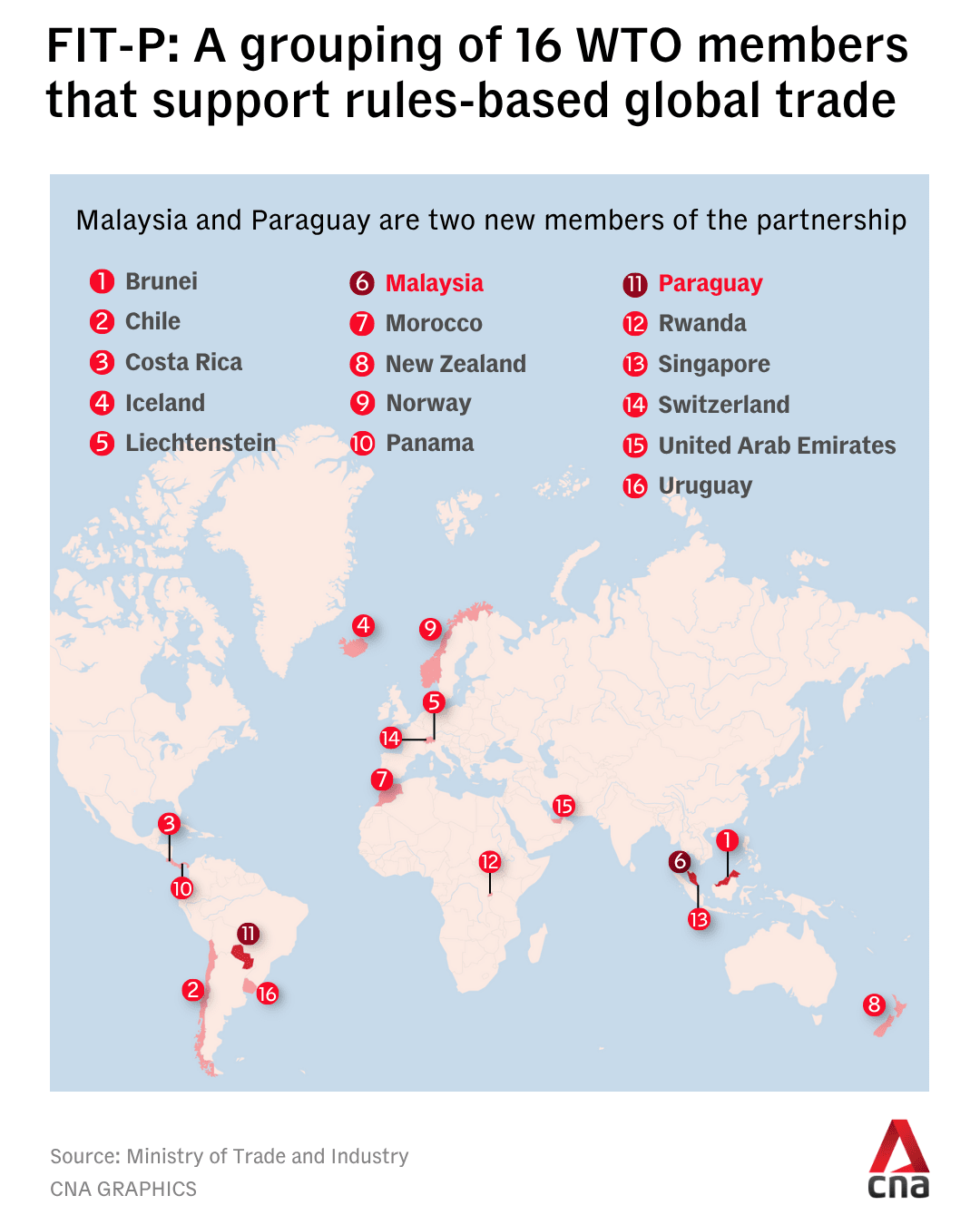
"On behalf of my fellow FITP members, Iet me extend a warm welcome to Paraguay and Malaysia as our newest members, bringing our partnership to a total of 16 countries," said Mr Gan, who is also Singapore's Minister of Trade and Industry.
"This new membership reaffirms the value of FIT Partnership for all of us," he said, adding that the countries have made good progress over the last few months to develop initiatives to embark on.
Mr Gan said the partnership does not intend to replace the WTO, but complement its efforts.
"Our work here shows that small- and medium-sized countries can have agency to advance a positive agenda for trade and investment," he said.
The ministers also emphasised that the partnership is not a response to US tariffs, noting that discussions started two years ago, before US President Donald Trump took office in his current term.
Malaysia's Deputy Minister of Investment, Trade and Industry Liew Chin Tong said his country supports the effort by the co-convenors in bringing nations together to build a more resilient system.
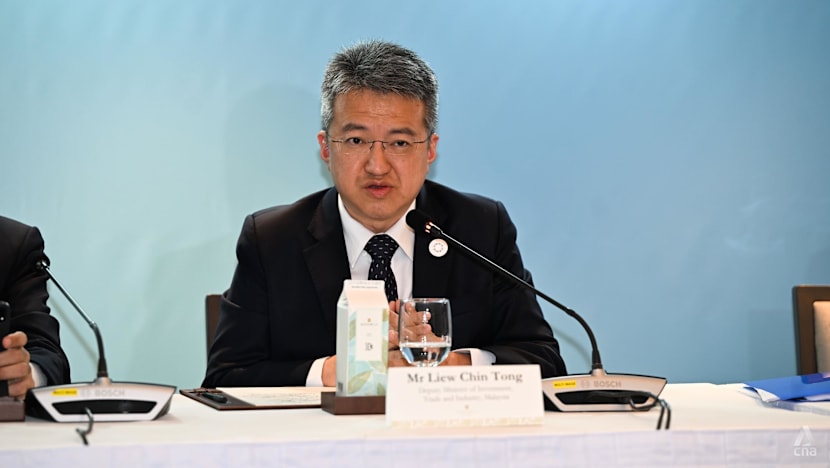
"It's important for us to deal with vulnerabilities and to be prepared for future crises through a multilateral trading system as well as joint effort and ... collective investment into mitigation," he said.
Singapore is the partnership's coordinating partner, and New Zealand will take over the role in mid-2026.
The next ministerial meeting will take place in Auckland next year.
Australia, Canada, Indonesia, Peru, Philippines and Thailand participated in the meeting as observer countries, and WTO director-general Ngozi Okonjo-Iweala participated virtually.
Asked if the partnership is expected to grow with more countries becoming members, Mr Gan said the FIT Partnership members have decided to temporarily defer the admission of new members for a few months to focus on implementing and developing initiatives.
There is also no fixed number of members that the group is aiming for, he said.
"We hope more countries will be interested in joining us, but we also do not intend to grow to a very huge body," he said. "We do want to ... continue to focus on the ... small- and medium-sized economies that are trade dependent, so there (is) some criteria."
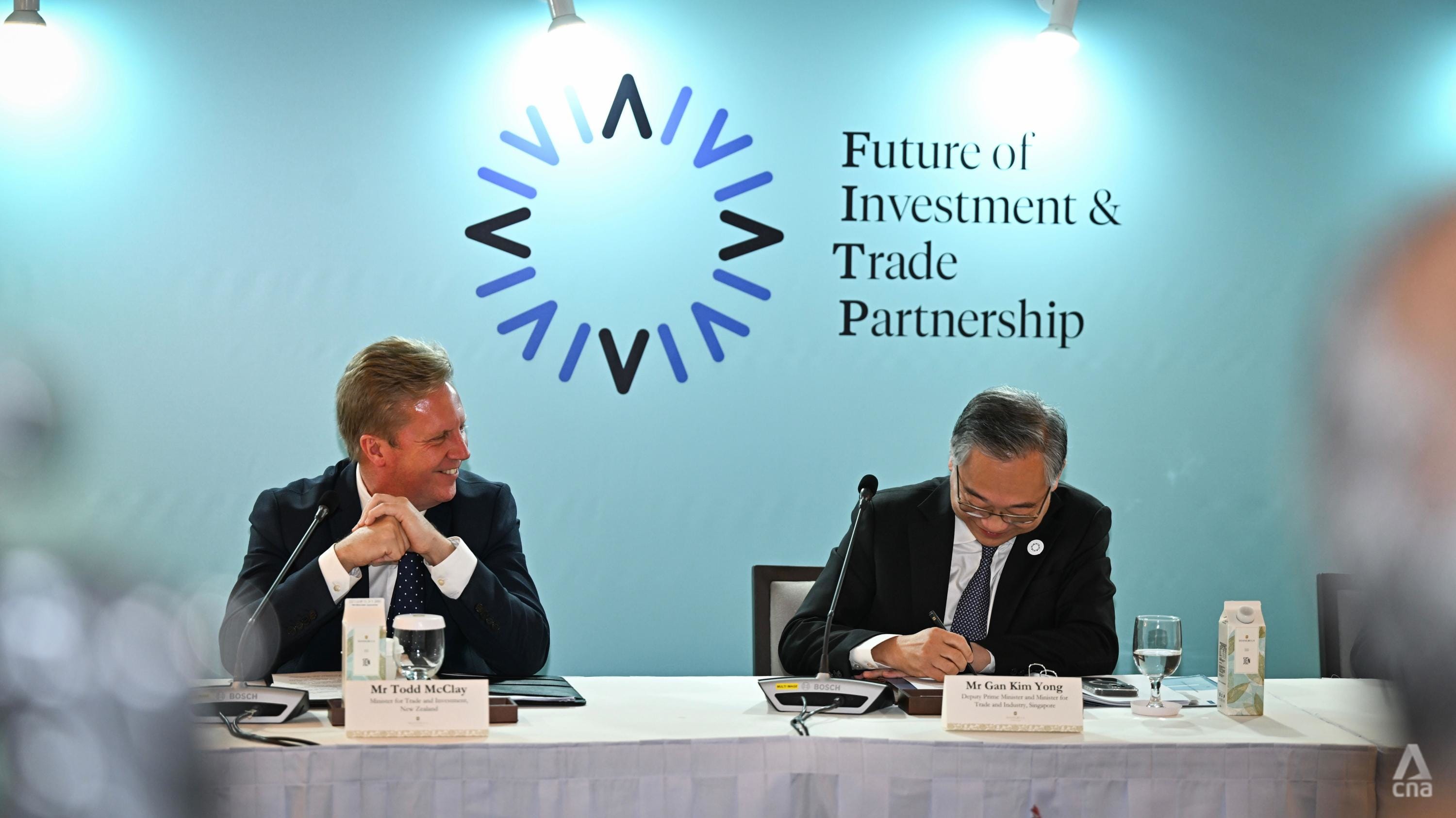
MEETING OF MINISTERS
At a press conference following the ministerial meeting, Mr Gan said the ministers affirmed their commitment to enhancing cooperation and coordination by announcing a Supply Chain Resilience Declaration.
Representatives from 13 member countries issued the ministerial declaration, which will aims to allow swifter and more meaningful responses to major supply chain risks and disruptions.
Switzerland's Director of the State Secretariat for Economic Affairs Helene Budliger Artieda said the declaration calls for countries to exchange information, facilitate trade during crisis and improve communication in emergencies by nominating national contact points.
The facilitation of trade during crisis could include eliminating custom duties, refraining from imposing export restrictions, removing non-tariff barriers and expediting the flow and transit of essential goods, she said.
The ministers also launched three new areas of focus: advancing digital and paperless trade, strengthening the rules-based trading system and leveraging technology.
"These workstreams will help members tackle emerging challenges and seize opportunities in the evolving global economy," said Mr Gan.
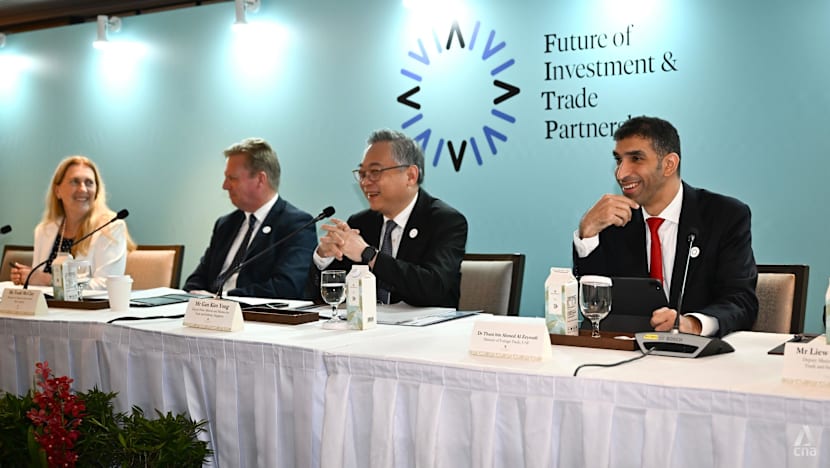
At the opening of the meeting, Mr Gan said that initiatives by the group demonstrate how they can incubate and pilot solutions.
He also noted that the members have agreed to adopt a "flexible geometry".
Mr Gan said the declaration on supply chain resilience was a good illustration of the "flexible geometry" system, since not all members jointly issued the declaration.
"Once we have a sufficient number to create enough critical mass, we should move ahead. At the same time, we keep the door open," he said.
This approach will allow the partnership to move fast, innovate, test new ideas and seize new opportunities, while staying open and inclusive.
Countries that are not members of the FIT Partnership can also participate in initiatives, as long as 75 per cent of members approve of the nation's participation.














